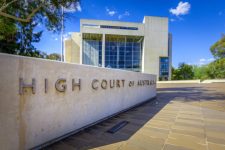How are High Court Justices Appointed in Australia?

The Privy Council held the position of the highest level of court in Australia until 1986, when the Australia Act resulted in the cessation of appeals to that Court.
Since that time, the High Court of Australia has been the highest court in the land is is entrusted with many of the nation’s most significant cases.
Jurisdiction of the High Court
Section 75 of the Commonwealth Constitution confers jurisdiction on the High Court in all cases:
- Which arise under any treaty;
- Which affect consuls or other representatives of other countries;
- In which the Commonwealth, or a person suing or being sued on behalf of the Commonwealth, is a party;
- Between States, or between residents of different States, or between a State and a resident of another State; and
- In which a writ of Mandamus or prohibition or an injunction is sought against an officer of the Commonwealth.
Section 76 empowers the Federal Parliament to pass laws which confer jurisdiction on the High Court in all cases:
- Arising under the Constitution, or involving its interpretation;
- Arising under any laws made by the Parliament;
- Of Admiralty and maritime jurisdiction;
- Relating to the same subject-matter claimed under the laws of different States.
The High Court has the final say on the interpretation and application of all Australian laws, including state and federal laws, their constitutionality and the interpretation of the common law.
It hears appeals from decisions of state and territory Supreme Courts, and from other federal courts.
One of its functions is to maintain the rule of law protect the community against the misuse of power. As Former Chief Justice Murray Gleeson said in a speech:
“The importance of the rule of law lies partly in the power it denies to people and to governments, and in the discipline to which it subjects all authority.
“Public confidence demands that the rule of law be respected, above all, by the judiciary.”
How are High Court justices appointed?
Justices of the High Court are appointed by the Governor-General in Council on the advice of the Commonwealth Attorney-General and the Federal Cabinet.
Since 1979, the Commonwealth Attorney-General has been required to consult with the Attorneys-General of the states and territories of each Australian jurisdiction about appointments, although the Commonwealth Attorney-General does not have to act in accordance with their advice or wishes.
Section 6 of the High Court of Australia Act 1979 (Cth) requires appointees to have been a judge of a federal, state or territory court, or been enrolled as a legal practitioner for at least five years with either the High Court itself or with a state or territory Supreme Court. There are no other formal requirements, except for having to be below the formal requirement age of 70.
Judicial independence
The Australian High Court is supposed to be free from political influence.
In fact, no politicians have been appointed to the Court since 1975, when Gough Whitlam’s Attorney-General, Lionel Murphy, was controversially appointed to the bench.
But it is generally accepted that the government of the day has always sought to appoint justices who are sympathetic to their causes.
Criticism by politicians
The ideal of independence has drawn criticism from ultra-conservative politicians like Peter Dutton who has complained that there are too many “civil libertarians” on the Court.
Another example is Nationals leader Tim Fischer, who reacted to the Mabo decision by calling for the appointment of “Capital C conservative High Court judges.”
Many hope the High Court will maintain its independence, rather than sway towards the politically determined appointment process in the United States.







